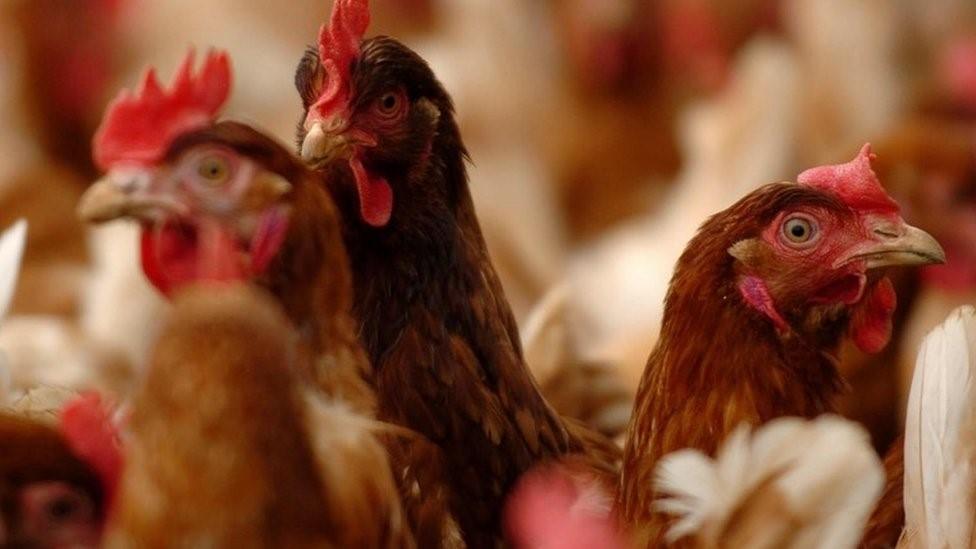Bird flu kills swans in Warwickshire and Worcestershire
- Published
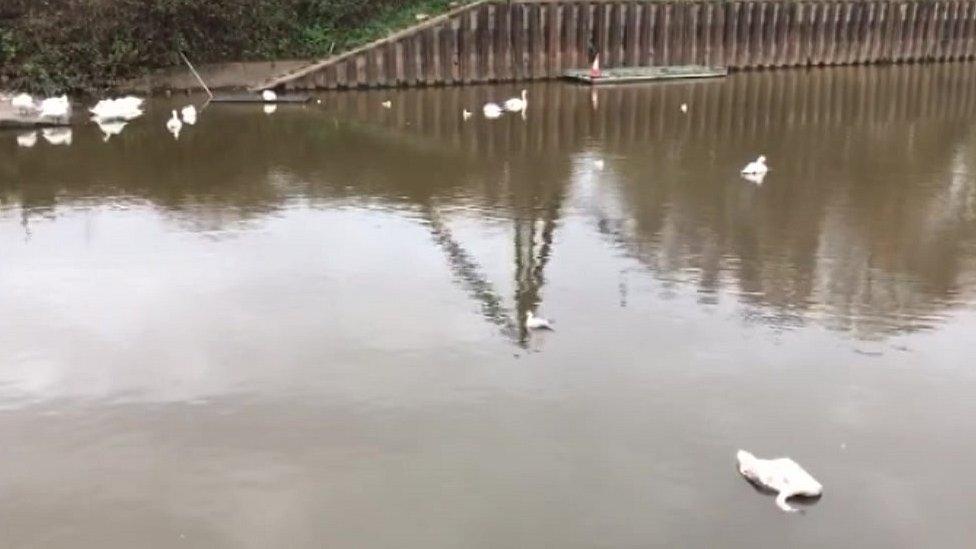
The Department for Environment, Food and Rural Affairs (Defra) is looking at the death of up to nine swans in Diglis in Worcester
Cases of bird flu have been confirmed in Warwickshire and Worcestershire, officials say.
A number of dead swans have been found in Evesham and Stratford-upon-Avon, and the Department for Environment, Food and Rural Affairs (Defra) is looking at further deaths in Worcester.
A swan rescue centre near Droitwich has shut after two swans it treated from Evesham passed the virus on to others.
Cases of avian flu have now been reported across England.
The latest outbreak shows it has been detected in two swans in Stratford-upon-Avon and six swans in Evesham, Defra said.
An Avian Influenza Prevention Zone, introduced last month around a chicken farm in Herefordshire, remains in place. It follows an outbreak of the "highly pathogenic" H5N8 strain.
Doug Payne, part of a swan rescue group which monitors the birds in Evesham, said he found two dead swans in the town centre before coming across a further four.
Official post-mortem tests confirmed avian flu, he said.
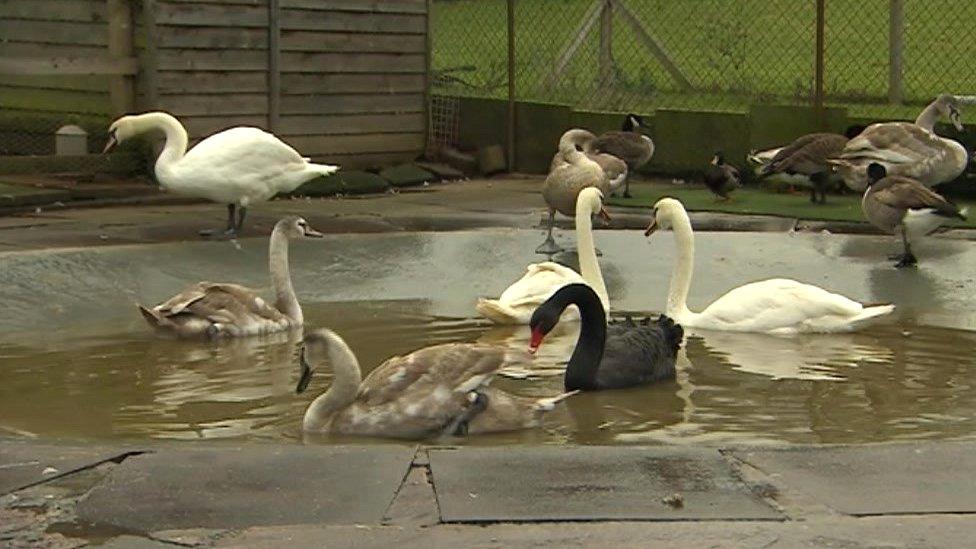
Two ill swans passed the virus on to other birds at a rescue centre in Wychbold

Analysis: Dr David Gregory-Kumar, Midlands Today science, environment and rural affairs correspondent:
This seems to be a particularly nasty strain of bird flu and it is not just bad news for local wildlife.
Anyone with poultry, from a few chickens right up to large scale turkey farmers will also very concerned. If any birds on a farm are infected then the entire flock has to be slaughtered, as has already happened at a chicken farm near Leominster.
From the 14 December the government is advising all poultry owners to make sure their birds are housed so they can't come into contact with wild birds carrying the virus.
The fear for commercial poultry owners, particularly of free-range turkeys, is that if the outbreak is seen to be escalating the government might bring that advice forward.
And if they have to be kept indoors for longer then free range birds like turkeys may lose their designation, and their price premium, just before Christmas.

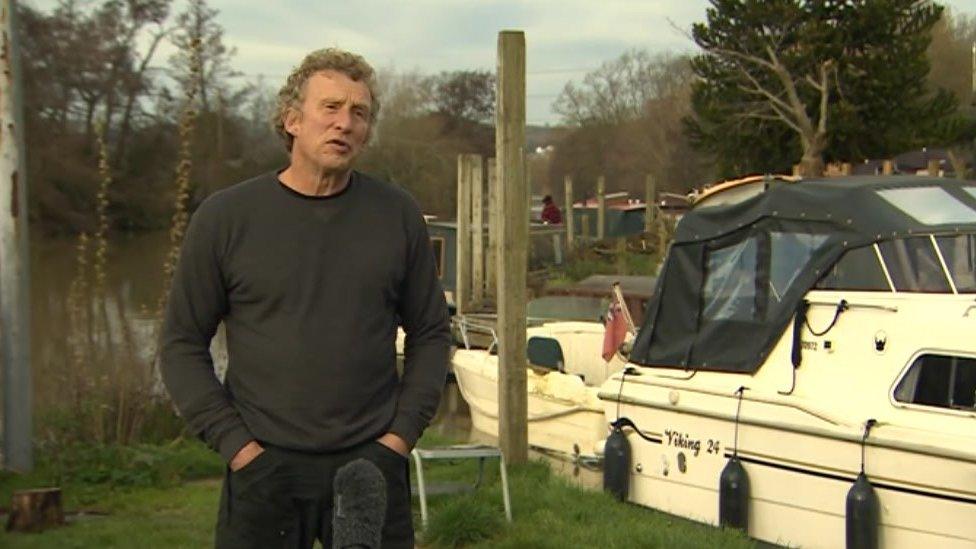
Bob Payne said he found six dead birds in Evesham
Jan Harrigan from Wychbold Swan Rescue said: "The two swans we had brought in to treat died in the night and I thought, that's funny. And one of the chickens died as well and of course, that's where it all started.
"We've lost about nine [swans] I suppose and all the few chickens I had."
Nick James, from the Animal and Plant Health Agency, said it was a "tragic time" with cases being reported "all around England from Cumbria to the south coast and back up to Northumberland".
He urged anyone who comes across dead wild birds to report it to Defra.

Follow BBC West Midlands on Facebook, external, Twitter, external and Instagram, external. Send your story ideas to: newsonline.westmidlands@bbc.co.uk, external
Related topics
- Published11 November 2020
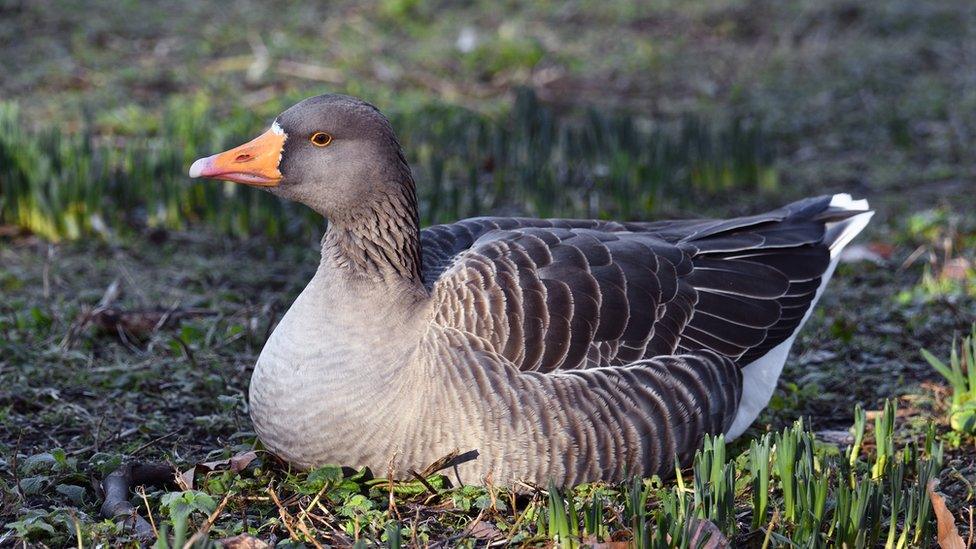
- Published5 November 2020
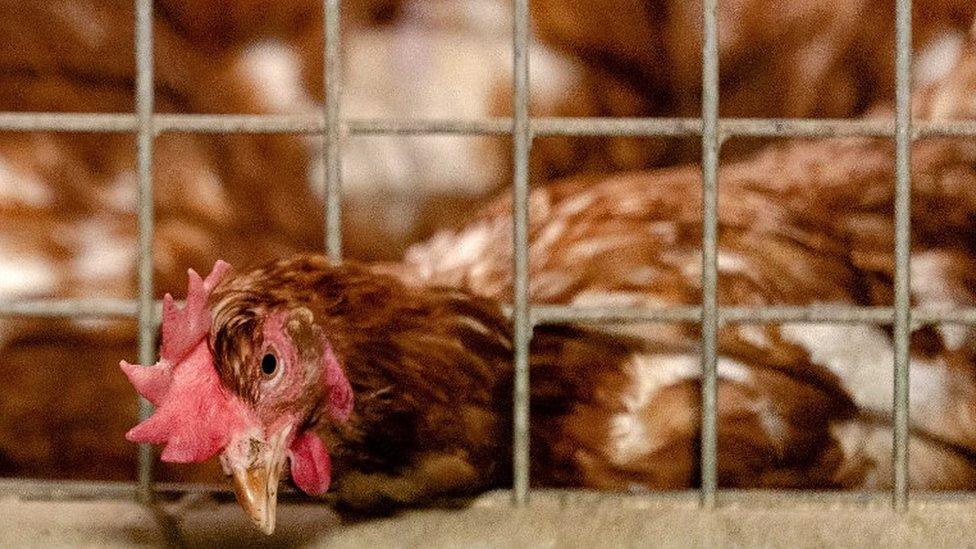
- Published2 November 2020
